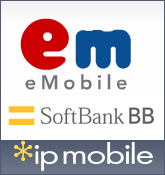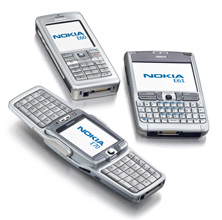 Back in 1999, when I was editing Computing Japan magazine, we ran an article entitled “Third Generation Mobile: Three Groups for 3G” looking at the three groups — NTT DoCoMo, IDO-DDI (later, with KDD, KDDI) and IMT-2000 Planning Corp. (later J-Phone) — lining up for a new license. The prediction was that “success for the 3G business depends on the digital content.” Now, 7 years later, three new hopefuls are lining up in a far more mature market, and not only content but also terminals, churn, number portability and voice versus data will be significant factors.
Back in 1999, when I was editing Computing Japan magazine, we ran an article entitled “Third Generation Mobile: Three Groups for 3G” looking at the three groups — NTT DoCoMo, IDO-DDI (later, with KDD, KDDI) and IMT-2000 Planning Corp. (later J-Phone) — lining up for a new license. The prediction was that “success for the 3G business depends on the digital content.” Now, 7 years later, three new hopefuls are lining up in a far more mature market, and not only content but also terminals, churn, number portability and voice versus data will be significant factors.
On November 10, Japan’s Ministry of Internal Affairs and Communications said it would grant three new carriers licenses to operate in the 1.7 and 2 GHz bands; BB Mobile of Softbank Corp. and e-mobile of eAccess Ltd. will offer services based on W-CDMA technology while IPMobile Inc. will offer Japan’s first TD-CDMA-based services. The three are expected to launch later in 2006.
The three newcomers are entering a highly competitive market dominated by three existing incumbents: NTT DoCoMo Inc., KDDI Corp. and Vodafone K.K., which reported a collective 89.4 million subscribers as of October 31. The new players are expected to expand the variety of wireless services and pricing levels available, providing more choice and lowering costs — not least of all for terminals — according to one ministry quotation.


 Back in 1999, when I was editing Computing Japan magazine, we ran an article entitled “
Back in 1999, when I was editing Computing Japan magazine, we ran an article entitled “ A brief prediction. While idly surfing about the web today, I noticed that
A brief prediction. While idly surfing about the web today, I noticed that